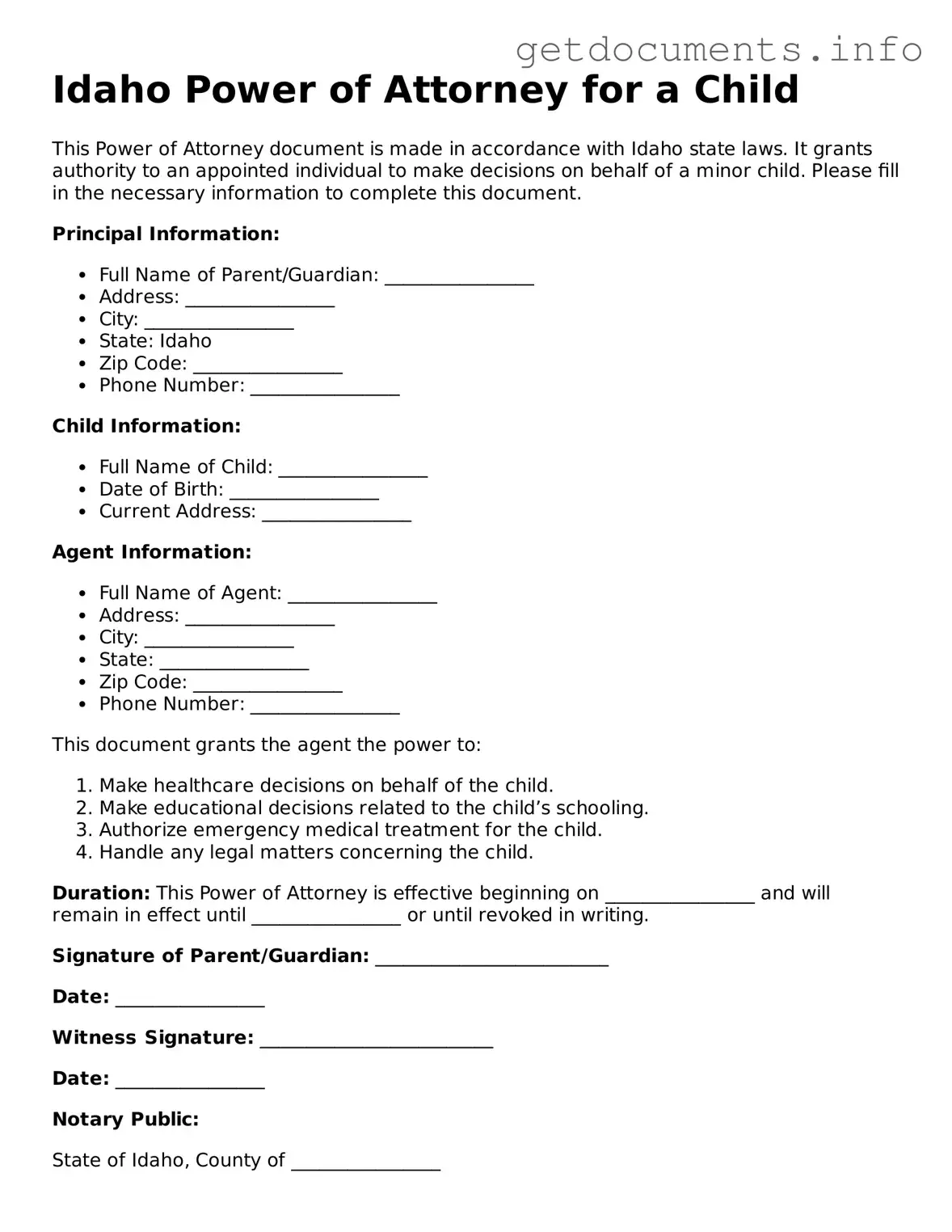Free Power of Attorney for a Child Template for Idaho
The Idaho Power of Attorney for a Child form is a legal document that allows a parent or guardian to designate another adult to make decisions on behalf of their child. This arrangement can be essential in situations where the parent is unable to care for their child temporarily, ensuring that the child's needs are met. Understanding the importance of this form can help provide peace of mind for families facing unforeseen circumstances.
If you are ready to take the next step in securing your child's well-being, consider filling out the form by clicking the button below.
Access Power of Attorney for a Child Editor

Free Power of Attorney for a Child Template for Idaho
Access Power of Attorney for a Child Editor
Got places to be? Complete the form fast
Fill out Power of Attorney for a Child online and avoid printing or scanning.
Access Power of Attorney for a Child Editor
or
⇩ PDF File
